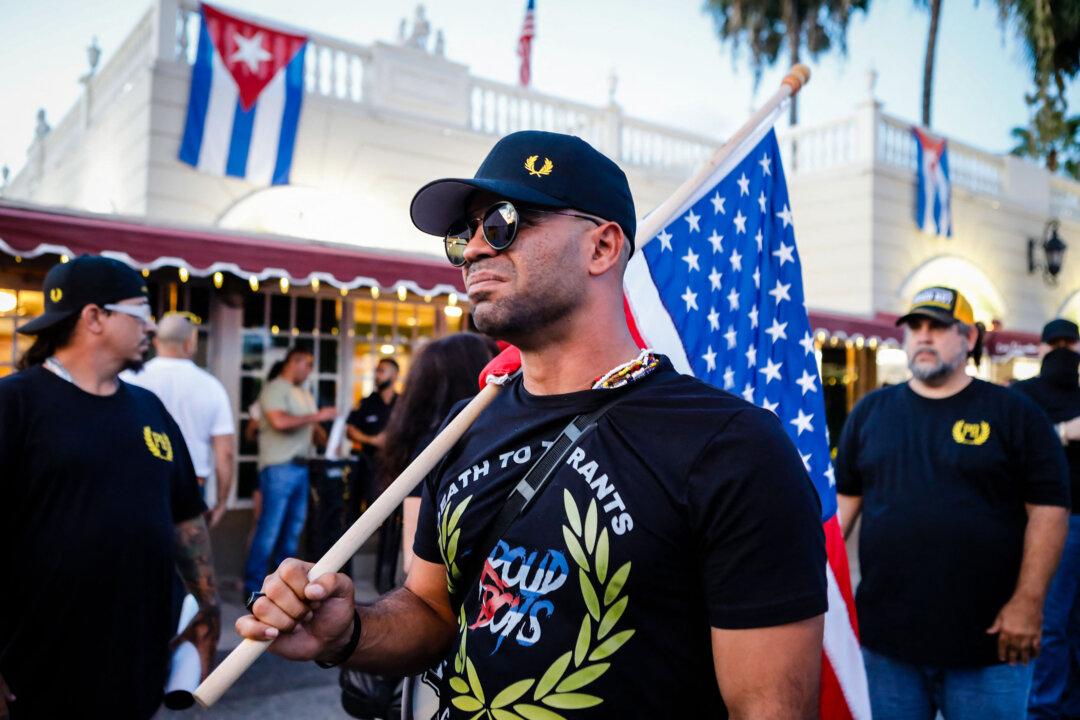The most damning piece of evidence in the trial of five members of the Proud Boys was created by the U.S. intelligence community and planted on defendant Enrique Tarrio to frame him and others for alleged Jan. 6 crimes, an explosive defense motion alleges.
Filed on Feb. 10 by an attorney for Proud Boys defendant Dominic Pezzola, the motion asks U.S. District Judge Timothy Kelly to declare a mistrial due to “outrageous government misconduct.”





